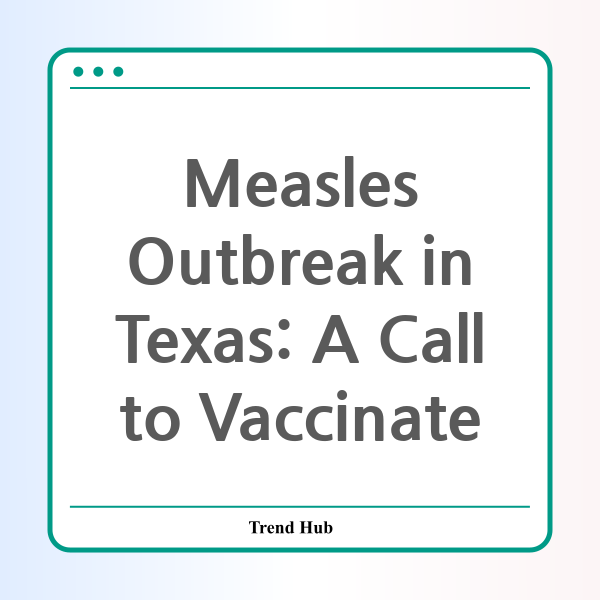* This website participates in the Amazon Affiliate Program and earns from qualifying purchases.

As the first measles death in Texas in nearly a decade has been reported, the urgency around vaccination has escalated dramatically. The alarming outbreak has now infected over 120 individuals across nine counties, primarily affecting the unvaccinated population in West Texas, particularly within the Mennonite community. This tragic event is a stark reminder of the risks posed by vaccine hesitancy and highlights the critical importance of immunizations.
Measles is more than just a childhood illness; it is a highly contagious respiratory virus that can have severe consequences, including pneumonia, brain swelling, and ultimately, death. The Centers for Disease Control and Prevention (CDC) has documented that up to 90% of people who are not vaccinated will contract measles if exposed to the virus. With the latest outbreak marking the largest in Texas in over 30 years, it raises questions about our collective commitment to community health.
The recent death of a school-aged child who was unvaccinated has shocked many, as it symbolizes the real consequences of neglecting vaccination. The Texas Department of State Health Services reported that this tragic incident underscores the necessity of achieving high vaccination rates to protect everyone in our communities, especially those who are most vulnerable.
Currently, around 14% of children in the affected regions have vaccine exemptions, a statistic that poses a significant risk to public health. The difficulty in managing this outbreak is compounded by the rural nature of West Texas, where small towns are connected yet isolated by vast open land. This geography complicates effective contact tracing and outbreak management.
The role of misinformation in driving vaccine hesitancy cannot be ignored. The recent rise of individuals in high-profile positions promoting debunked theories linking vaccines to conditions like autism has further fueled skepticism. This situation emphasizes the critical need for clear, factual communication from healthcare providers to parents about the safety and importance of vaccinations.
To combat this outbreak effectively, collaboration between public health officials, healthcare providers, and communities is critical. Measures must be taken to improve access to vaccinations, including educational campaigns that address the concerns of hesitant parents. By fostering an environment that prioritizes science and public health, we can work towards eradicating not only the current measles outbreak, but also prevent future outbreaks.
In conclusion, the situation in West Texas serves as a cautionary tale for all of us. Vaccinations are a vital tool in protecting not just ourselves, but our communities. As we navigate this public health crisis, let us remember the importance of immunizations and strive to ensure that such tragedies do not happen again.
* This website participates in the Amazon Affiliate Program and earns from qualifying purchases.